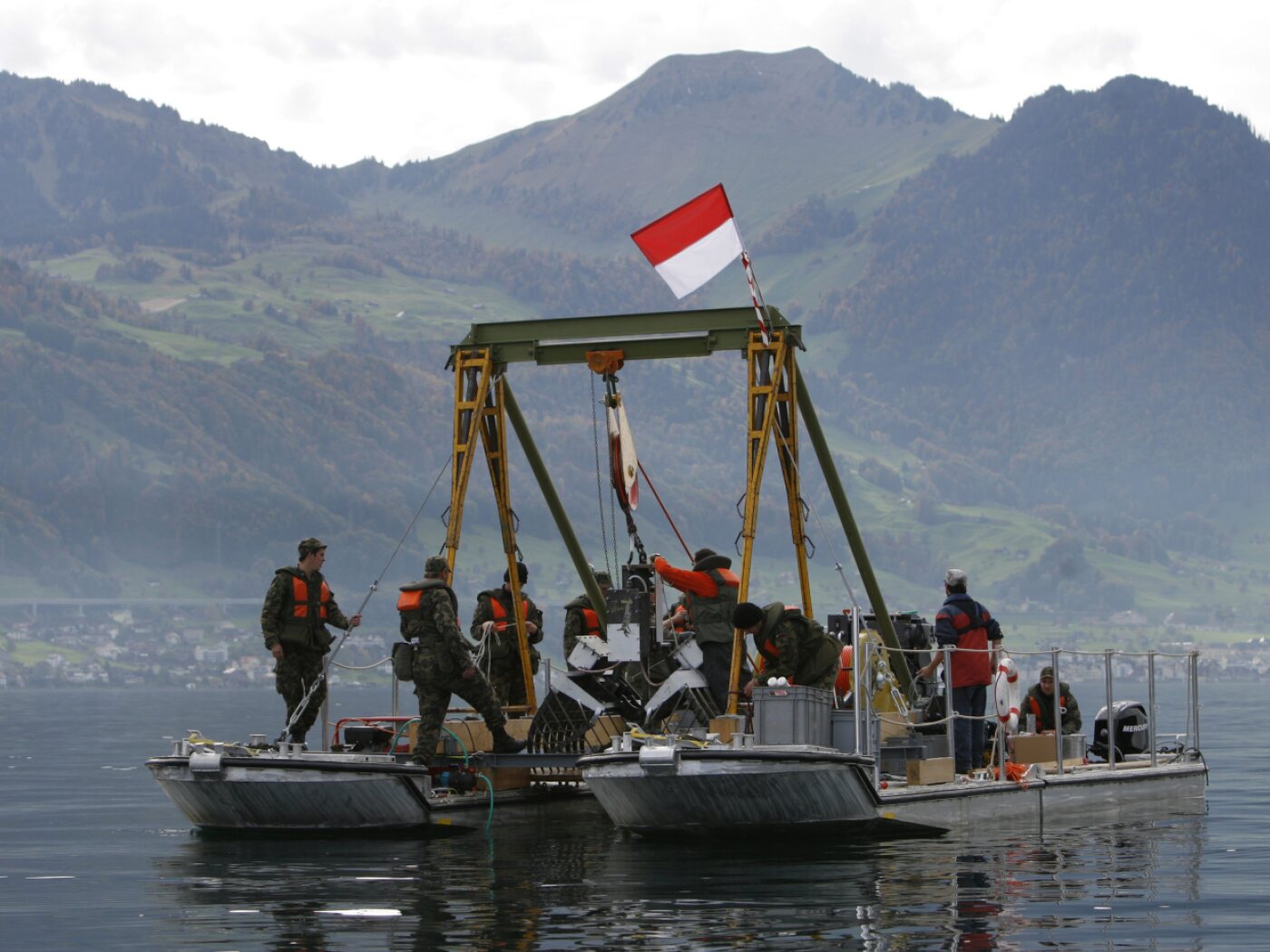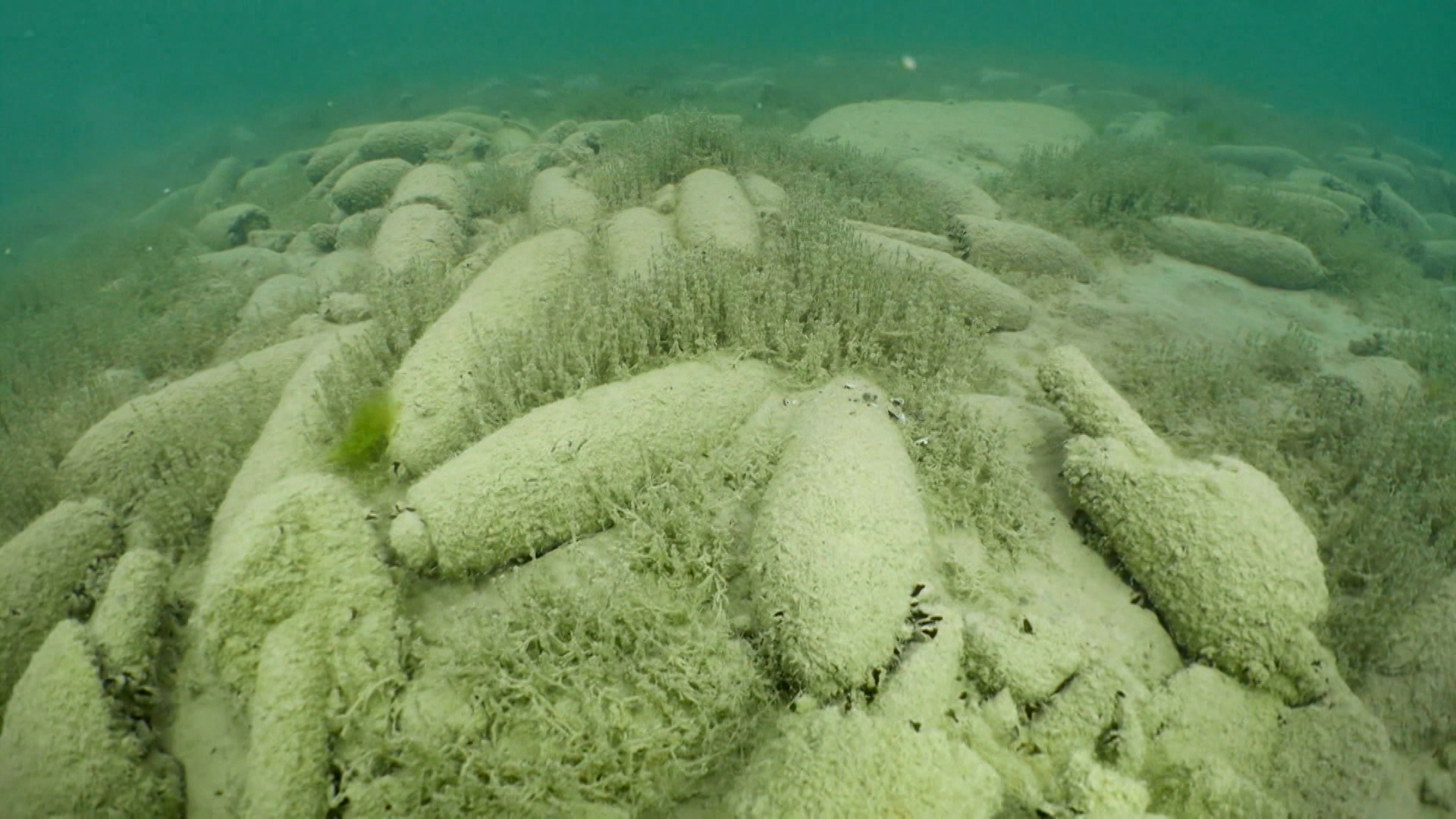
Ideas to recover ammunition from Swiss lakes flood in

An appeal to the public to suggest ways to safely retrieve 8,000 tons of munitions from the bottom of Swiss lakes has yielded around 100 proposals.
+ Get the most important news from Switzerland in your inbox
The three best projects submitted to the Federal Armament Office (armasuisse) could serve as a basis for further decisions, and win a CHF50,000 prize if accepted. A decision will be made by a panel of experts in May.
Recovering sunken munitions at a depth of 150 to 220 metres is a complex operation. In addition to depth, additional challenges include poor visibility, risk of explosions, current, varying size (from 4mm to 20cm in size, 0.4g to 50kg in weight) as well as the characteristics of the munitions.
+ Swiss army vigilant about sunken munitions
The ordnance are also encased in fine sediments up to two metres thick, which, during salvage operations, could shift, making the waters murky and further worsening visibility. Most ammunition components are made of iron and are therefore magnetic. However, some detonators are composed of non-magnetic materials such as copper, brass or aluminum.
In the Bernese lakes of Thun and Brienz alone, and in Lake Lucerne, there are still about 8,000 tons of military munitions sunk between 1918 and 1964.
Image problem
According to the results of a monitoring carried out in the summer of 2019 by the Federal Department of Defense, munitions dumps in the above mentioned lakes are not hazardous to the waters.
Until the mid-20th century, the military dumped ammunition and other items into several Swiss lakes. It was common practice to dispose of ammunition in this way.
In June 2022, the Swiss Federal Audit Office (SFAO) had concluded that the problem poses a financial as well as an image risk to the federal government.
The costs for analysis, surveillance and remediation were estimated at several hundred million francs. According to the Federal Office for the Environment, the sites should be cleaned up by 2040.

More
Public asked how to recover dumped munitions in Swiss lakes
Translated from Italian with DeepL/mga
This news story has been written and carefully fact-checked by an external editorial team. At SWI swissinfo.ch we select the most relevant news for an international audience and use automatic translation tools such as DeepL to translate it into English. Providing you with automatically translated news gives us the time to write more in-depth articles.
If you want to know more about how we work, have a look here, if you want to learn more about how we use technology, click here, and if you have feedback on this news story please write to english@swissinfo.ch.

In compliance with the JTI standards
More: SWI swissinfo.ch certified by the Journalism Trust Initiative

























You can find an overview of ongoing debates with our journalists here . Please join us!
If you want to start a conversation about a topic raised in this article or want to report factual errors, email us at english@swissinfo.ch.